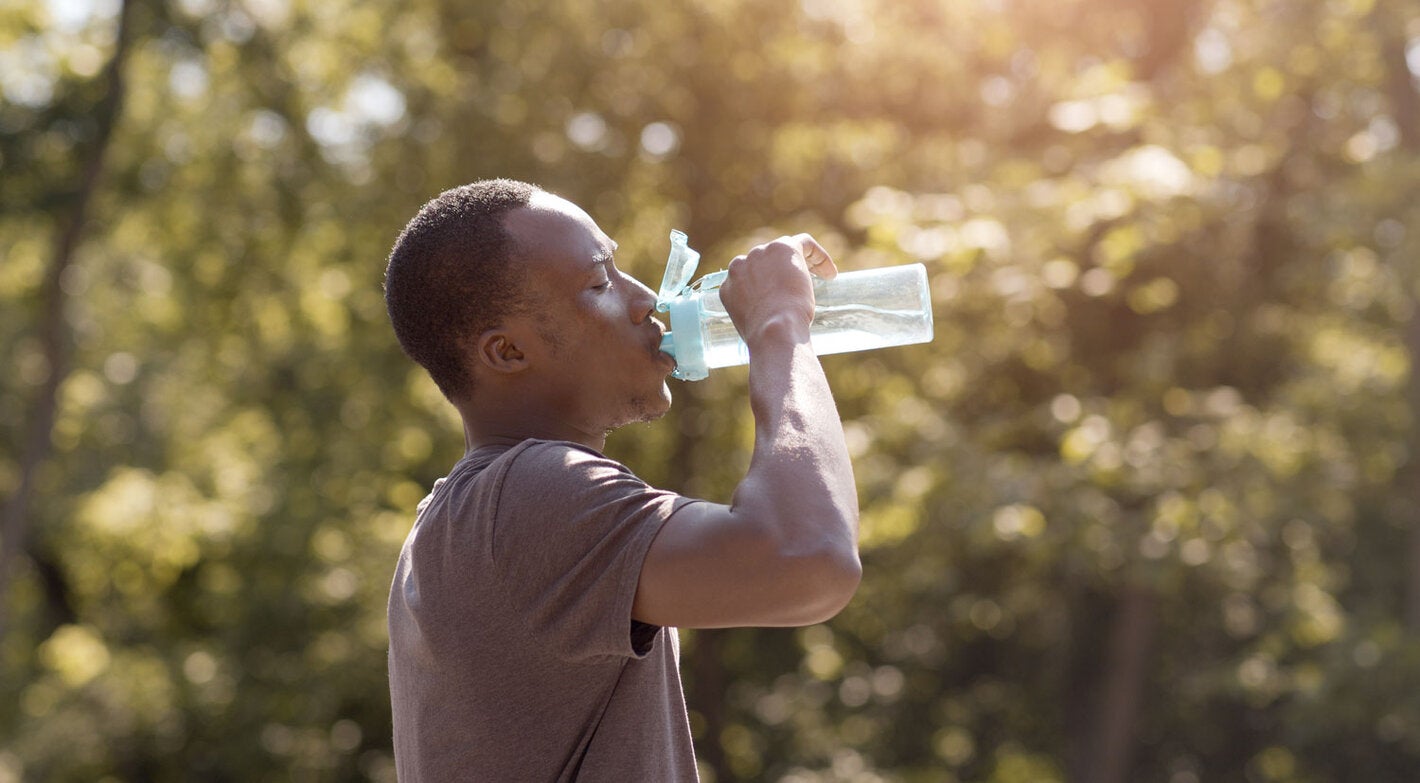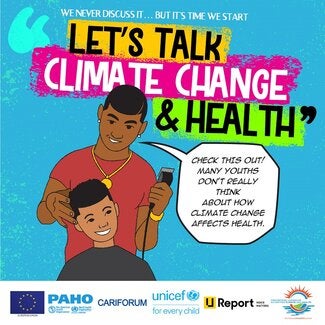
Bridgetown, Barbados, 20 February 2024 (PAHO/WHO) – In a survey of just over 1370 young people from Barbados, the Eastern Caribbean countries and Trinidad and Tobago, 80% reported thinking about how climate impacts their health and almost 70% called for large scale efforts to tackle the effects of climate change on health.
This was a key takeaway of a UReport Survey in partnership with the Caribbean Subregional Office of the Pan American Health Organization, as part of the European Union-funded CARIFORUM climate change and health project, 2020-2025.
An overwhelming 81% believed that some groups or types of people were more likely to experience health problems related to climate change. There was similar agreement on the human versus natural causes of climate change and the main effects identified were contaminated waste and extreme weather events, including flooding. However, the youth did not identify a connection between a changing climate and the contaminated food, mental health and the spread of infectious diseases.
According to Subregional Program Director, Dean Chambliss, “Climate change impacts health directly and indirectly due to extreme weather events, sea level rise, increases in vector-, food-and water-borne diseases. The effects of climate change can result in injuries, illness and deaths due to extreme weather events, droughts, sea-level rise, heat waves, respiratory infections, noncommunicable diseases and mental health afflictions. Persons living in situations of vulnerability, for example, women, children, the elderly and adolescents, are disproportionately affected by climate change. Urgent action is required to protect such persons”.
Sixty-nine per cent of respondents were female and 86% of the participants were 0-19 years old. The youth considered themselves to be either extremely, very, or moderately knowledgeable about the causes and effects of climate change. When asked about their views on the best channels to receive information on this topic as well as solutions, it was noted that multiple platforms, including radio, television, face-to-face sessions, and Instagram should be utilised.
The findings are in line with a survey on the public understanding of climate change and health in the Caribbean conducted in 10 countries in 2020. In that study, adults 18-74+ considered themselves knowledgeable about the cause and effects of climate change on health and had given it a moderate to great deal of thought. And like the youth surveyed in 2022, the adults did not perceive the linkages between climate and mental health, Noncommunicable Diseases, contaminated water and food and hunger and malnutrition.
The adults identified children as more likely to experience health problems related to climate change, but they did not see this same level of impact on immigrants, pregnant women, indigenous people, disabled persons, outdoor workers, Health Care Workers and persons with pre-existing conditions.
Only 44% of adults and 50% of youth were aware of efforts in their country to address the health harms of climate change.
U-Report, UNICEF's flagship digital platform started in 2011 and supports adolescent, youth, and community participation. UReport serves as a tool to share information, raise awareness, and collect quantifiable data on specific areas that impact children, including the most vulnerable.
Feel free to view the dashboard with the results of the survey at https://eca.ureport.in/opinion/3321/.




